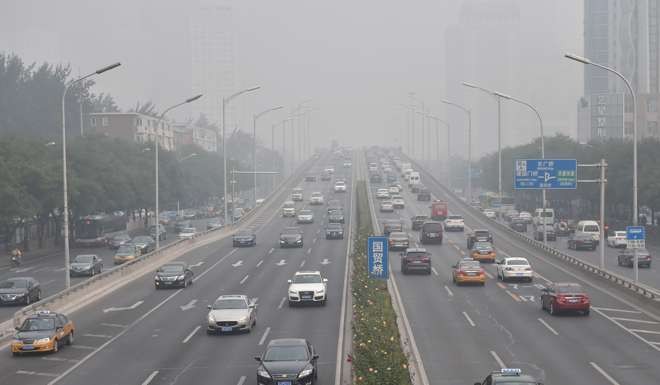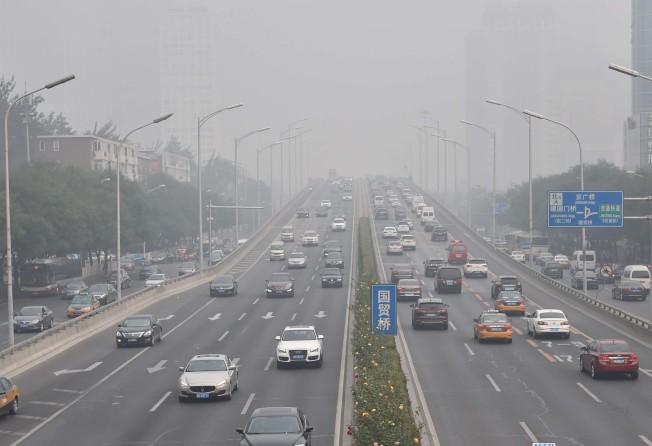
Auto financing finds traction in China
Total auto loans outstanding grew to 392 billion yuan last year amid a record 24.5 million vehicle sales

The rate of penetration of China’s auto-finance market has reached 35 per cent, a jump from the 20 per cent last recorded in 2014. But with auto-related financing still significantly lagging behind developed markets, there may be significant opportunities ahead for auto finance providers, according to a new report by Roland Berger and Credit First Financial Leasing.
China sold a record 24.5 million vehicles last year. But against the high sales figures, the total volume of auto loans outstanding that are taken out from autofinancing companies stand at a low of just 392 billion yuan. With supportive government policies available, vehicle sales are poised to stay strong this year despite the slowdown in the economy, making car financing strategy all the more potent.
“China’s autofinance penetration is far below other mature markets,” said Zhang Junyi, senior conulstant at Roland Berger and Wang Wei, chairman of Credit First, who are the report’s authors.
They noted that car financing in US and Germany are at 81 and 64 per cent, respectively. Even India, as a developing market, has reached global levels.
“As a major market for car sales, the gaps in China’s level of development against these markets are significant . But it could mean significant potential and room for development ahead,” Zhang said.
In total, there are 25 autofinance companies in China. Roland Berger said many of them were introduced by foreign automakers when they set up their carmaking joint ventures.

Among them BMW, Volkwagen and Toyota rank as the biggest players in the market by registered capital.
More domestic car makers are in the process of playing catch up. Since last year, domestic carmakers added seven financing companies to the market.
Most companies have been funding their business by the shareholders’ own capital or bank borrowings. While growing, autofinance companies funded just some 35 billion yuan from asset backed securities this year.
“China auto loan ABS have performed well in 2016. The cumulative default rate and cumulative net losses of auto loan receivables have been low to date,” said Standard & Poor’s in a report on Monday.
The author noted investors are attracted to asset backed securities for their short tenors and how the repayments are structured.
Drawn by the sector’s growth potential, commercial banks have also been speeding up their strategies to compete against the autofinance companies although banks mostly still target dealers to provide financing at the wholesale level.
Bank of Communications and Everbright Bank have started to set up dedicated autofinancing centres to work with dealers who are most challenged by liquidity issues.
“It’s tough business to be a dealer. They need to respond to the renewable energy trend and set up new partnerships. Dealers themselves have entered the third wave. Previously, their strategy was flag planting, gaining market share by large scale mergers and acquisitions. When dealers insist they will stay focused on the car business, providing autofinancing then becomes a key source of business for them,” Zhang said.
Further to funding first-hand sales, Zhang noted plenty of other opportunities to capture value over a car’s useful life, such as financing second-hand purchases, pooled car leasing apps and evencar insurance, which is now majority dominated by three insurers, including PICC, Ping An and China Pacific.
Against every new car that is sold, Roland Berger estimates second-hand cars saw a turnover of just 0.2 - 0.3 per car in China last year. The figure is again far below western market levels, where a ratio of two or three second-hand cars against every new car being sold is the norm.
The report’s authors said as a next step, financial technology or “fintech”combined with the car sharing apps, may be an accelerator to help answer the service gaps that exist in China.
Roland Berger said BMW’s DriveNow pooled car leasing service or Daimler’s Moovel carpooling app launched from Germany are examples to China’s players on how they could beat backchallengers such as Uber who threaten car sales.